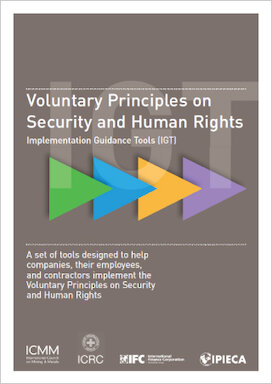The Voluntary Principles on Security and Human Rights are designed to help extractive companies maintain the safety and security of their operations within an operating framework that ensures respect for human rights and fundamental freedoms and, when applicable, for international humanitarian law. The tools serve as a helpful reference guide to any company seeking to ensure that its operations are undertaken in a manner that ensures respect for human rights and fundamental freedoms.
Voluntary Principles on Security and Human Rights: Implementation Guidance Tools

Related resources
- 25 September 2024
Undertaking ‘meaningful engagement’ not only enables companies to meet regulatory guidelines and international standards, but also build robust, constructive and reciprocal relationships with stakeholders.
- 5 September 2024
The oil and gas industry operates in many locations where people work, and often live together, in close quarters, such as offshore installations, ships, and remote camps. In these types of locations, infectious diseases can spread rapidly, affect workers, and disrupt operations. This guidance has been developed for local management and operations personnel working in these locations.
- 29 August 2024
This recommended practice identifies key drug and alcohol programme elements and is intended for use by contractor companies and oil and gas industry owners and operators.
- 7 February 2024
Oil and gas operations take place in many countries where the quality of medical services and specialities differs. It is therefore important for a company to assess local health facilities to ensure that they can provide optimal medical care for their workers.



